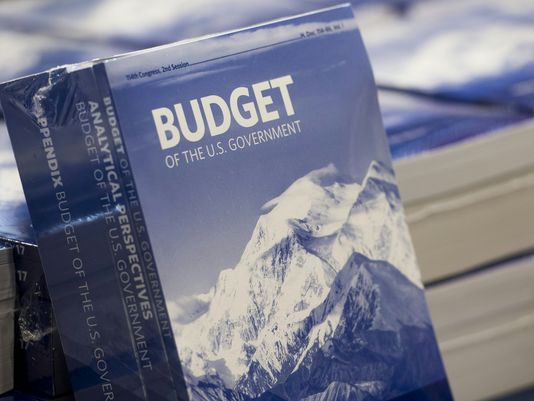For all of the public attention on the presidential election this year, very little of that attention has been paid to how the candidates will pay for the things they say they'll do. Even less has been written and said about what Congressional candidates will do and how they'll pay for those things. Now that the presidential primary is winding down, I thought it was a good time to step back and focus on what we should all be asking a new president and Congress to do the bring our fiscal house in order.
First, let's start with a little primer on how federal spending and revenue policies work and what any president and congress can do to change those policies. In theory, every single year, the president proposes a budget – a document that is at once political, aspirational and pragmatic, it outlines what programs he or she will increase or cut and where revenues will come from (see President' Obama's most recent budget at right). From there, each chamber of Congress proposes its own budget resolution, usually after holding hearings on the president's proposals. The House and the Senate get together, iron out their differences, and produce a joint budget resolution which sets spending limits for the appropriations process. From there, Congress passes all the appropriations bills prior to the end of the fiscal year on September 30.
Except we haven't seen the “Schoolhouse Rock” version of events for more than 20 years. This year, Congress didn't even hold hearings on the president's budget and we've seen multiple continuing resolutions almost every year since 1994. (In 1997, Congress got everything done in time to avoid a continuing resolution or shutdown, but only by rolling up several bills in to an omnibus appropriations bill). Instead, there have been actual shutdowns and threats of shutdowns, from the mid-1990s regarding spending levels and more recently, over controversies relating to the debt ceiling and the Affordable Care Act, also known as Obamacare.
So what do we need to hear from both the presidential candidates? Let's start with the obvious: Please tell the voters how we as a country are going to pay for the things you want to do, or how you will get Congress to agree to stop doing the things you don't want to. Be straightforward: If you believe that the economy or our national security is so fragile that current conditions warrant deficit spending that will increase our $19 trillion debt, say so. If you believe we cannot stabilize our economy until we stabilize the debt and therefore must make changes to both revenue and spending patterns, tell us that. Voters can handle the truth. But, then, go further: Tell how you plan to go down whichever fiscal path you believe is right.
Once in the White House, the candidate who becomes president will need to provide the kind of leadership that brings skeptics and political adversaries together. But the voters shouldn't have to wait to see that; now is the time to demonstrate those leadership skills.
As the fall approaches, pundits and voters will start asking more questions like these of the presidential candidates, but that is simply not enough. Every decision that determines our long term fiscal health – from annual appropriations to once-in-a-generation tax reform – starts in Congress. This November, all 435 districts represented in the House of Representatives will elect their members and 34 Senate seats are up for election. Voters and pundits alike should be asking for details from candidates for Congress not just about ideology, but about how they plan to get things done. The county has endured stalemate politics for years. We need to see leadership from both political parties and both chambers of Congress to start putting our fiscal house in order.
Ryan Alexander is president of Taxpayers for Common Sense















Get Social